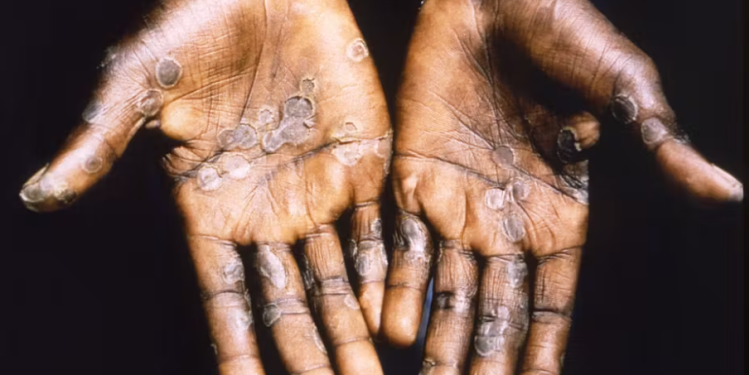The Ghana Health Service (GHS) has announced a concerning surge in Mpox cases, with 20 new infections confirmed as of July 30, 2025, bringing the national total to 302. This alarming increase follows closely on the heels of Ghana’s first reported Mpox-related death on July 22nd and a concurrent spike of 23 new cases, which elevated the total to 257 at the time. The rising infection rate underscores the growing public health challenge posed by the viral disease and necessitates heightened vigilance and preventive measures nationwide. The GHS is actively working to contain the spread through enhanced surveillance, contact tracing, and public education campaigns.
Mpox, formerly known as Monkeypox, is a viral zoonotic disease that primarily transmits through close physical contact with infected individuals or contaminated materials. Transmission occurs via contact with skin lesions, bodily fluids, or objects like clothing and bedding that have been exposed to the virus. The disease typically manifests with symptoms including fever, muscle aches, and a characteristic rash that can spread across the body. While most individuals recover without severe complications, vulnerable populations, such as children, pregnant women, and individuals with underlying health conditions, face a higher risk of severe illness. The recent fatality underscores the potential severity of the disease, particularly for those with compromised immune systems or pre-existing health vulnerabilities.
The GHS has issued a public health notice emphasizing the crucial role of public awareness and proactive health-seeking behavior in curbing the spread of Mpox. The notice urges individuals to avoid close contact with anyone exhibiting Mpox symptoms and to promptly report any suspected cases to the nearest health facility. This proactive approach is vital for early diagnosis, isolation, and effective management of cases, which are essential steps in breaking the chain of transmission and preventing further spread within communities. Timely reporting also allows health authorities to initiate contact tracing efforts and implement appropriate public health interventions.
The GHS is working diligently with regional health directorates to strengthen surveillance efforts, trace contacts of confirmed cases, monitor suspected cases, and respond rapidly to any new outbreaks. This coordinated response aims to identify and isolate infected individuals quickly, thereby minimizing the risk of further transmission. The collaborative approach between national and regional health authorities is crucial for effective disease containment, especially in areas experiencing higher infection rates. Through contact tracing, health officials can identify and monitor individuals who may have been exposed to the virus, offering testing and preventive measures as needed.
Public education campaigns are another critical component of the GHS’s response to the Mpox outbreak. These campaigns aim to disseminate accurate information about the disease, its transmission, and preventive measures, while also countering misinformation that can hinder effective control efforts. The GHS is emphasizing the importance of relying on verified sources for updates and guidance, urging the public to avoid spreading unverified information that could fuel unnecessary fear and panic. Clear and consistent communication is essential for building public trust and ensuring adherence to recommended preventive measures.
As Ghana grapples with this evolving public health challenge, the GHS is reinforcing preventive measures and appealing for widespread public cooperation to contain the virus and prevent further fatalities. The collective effort of individuals, communities, and health authorities is paramount in mitigating the impact of the outbreak. By adhering to recommended preventive measures, such as avoiding close contact with infected individuals, practicing good hygiene, and seeking prompt medical attention when symptoms appear, individuals can contribute significantly to controlling the spread of Mpox and protecting public health. The ongoing efforts of the GHS, coupled with public vigilance and adherence to preventive guidelines, will be crucial in containing the outbreak and safeguarding the health of the Ghanaian population.














